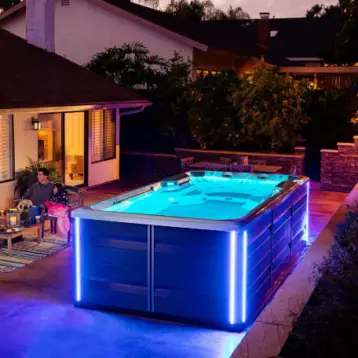
How do you choose the products for your business? While some business owners choose the first hit on a Google search, others look for the least expensive option that appears to meet their needs. But, when searching for a POS system for your business, you want to do the necessary research to ensure you’re choosing the right solution.
There are many small business POS systems on the market, which means you need to do your due diligence to ensure you’re selecting the system that best meets your business needs. With the proper research, you can have peace of mind that you’re selecting a system that has all of the features your business needs.
Here are 5 questions to ask that will help you to choose the right POS system.
1. What features does my business need in a POS system?
Before beginning your search for the best POS system, you’ll first want to write down and prioritize the features that are most important to you. There’s nothing worse than buying a POS system, only to find out that it’s not the best fit for your business.
Modern POS systems are highly advanced, offering a wide range of features that make day-to-day business operations much smoother. As a small business, some features that you’ll want to have in a POS system include:
- EMV and mobile payments
- Offline capability
- Digital receipts
- Discounts & coupons
- Sales rep capture
- Gift cards
As you research POS system options, you’ll find that many offer a wide range of other features. Think about what type of business you run and which features would be most beneficial. For example, if you run a small restaurant, you may also want a system that offers table management, reservations, and inventory management.
2. Is the system user-friendly?
There’s nothing more frustrating than a shiny new POS system that is difficult to use. For sales reps, cashiers, and customers alike, you want to invest in a system that offers an efficient and easy to understand user interface. Things such as digital signature pads, quick keys, and inventory search are all beneficial in making the system usable.
Many vendors offer free trials or online demos that allow you to get a first-hand feel of how the system looks and works. Before committing to a specific POS system, take the time to test it out and make sure that it’s user-friendly.
3. What’s my budget?
As with any business expense, when purchasing a POS system, you need to consider how much it costs to buy and maintain it. You’ll find that most POS vendors only offer partial information on pricing, so you’ll really need to do your research to uncover hidden fees and other fees like monthly payments and processing fees.
You’ll want to first figure out if the POS vendor offers support. As with anything technological, POS systems do break at times, so you want to ensure you have access to a support line to help. When researching support for a specific POS vendor, figure out how much support costs and how the company charges.
Next, you’ll want to determine if the POS system includes updates. Updates keep the system up-to-date and running smoothly. Ideally, you want a system that uses rolling updates, which means you don’t have to worry much about the cost of upgrading the hardware or software in the future.
4. Does the system create reports?
POS systems are for much more than completing point of sale transactions. In fact, depending on the features that are available on the system, you can also use it for inventory management, quality control, and even employee management.
One of the most important features of a POS system is reporting and metrics. When you have a system that collects data and crunches the numbers for you, it’s much easier to ensure your business is on track. Real-time metrics and reports can be beneficial for managing inventory or determining which employees are making the most sales.
5. Is the hardware proprietary?
Years from now you may need to upgrade to a new POS system that uses different software. After investing in your first POS system, you want to ensure that in the future you can use the same hardware components, even if the software is changed. If the vendor’s hardware is proprietary, then you’ll need to purchase a whole new system in the future.
With a non-proprietary system, you can reuse the equipment as often as needed, even if the POS software changes throughout the year. This allows you to minimize the costs of upgrading in the future.
Conclusion
Choosing the best POS system for your small business is a crucial decision. Ask these 5 questions to narrow down your options so that you can choose the POS system that best meets your business’ needs and objectives.










